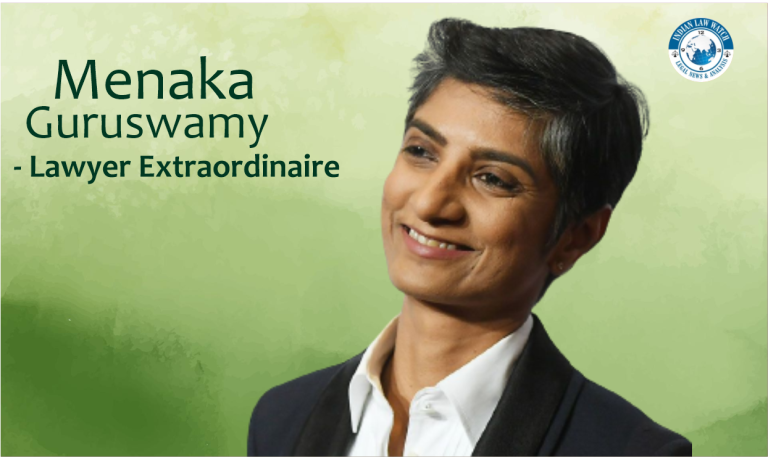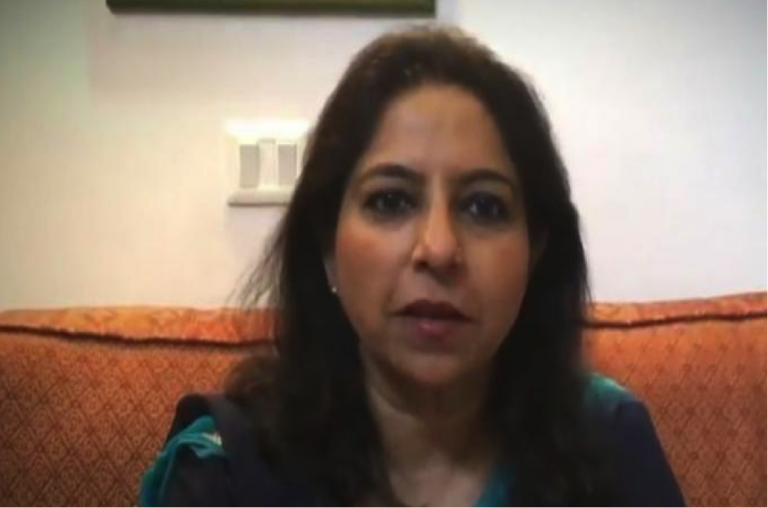Aryama Sundaram, Senior advocate dominating in Corporate law, persuasive speaker with ability to think originally

Aryama Sundaram, India’s one of the top advocate is recognised by his strength that lies in his ability to think originally making him easily stand out from his peers.
Before law started: A persuasive speaker recognised today as the legal luminary is chosen one for arguing complex corporate matters but do you know he started of his career from earning handsome salary in advertising job with the reputed Ogilvy & Mather agency.
Early Education: He started his practice from Madras High Court and then to Supreme Court. Sundaram finished his schooling from Lawrence School and graduated from Vivekananda College in 1976 and earned his law degree from Madras Law college. Not just an ordinary student, he was gold medalist in philosophy from the Madras University.
Risk of starting his own practice: The beginning of the practice started when he got enrolled with the Madras Bar Council on 26 November, 1980 and joined a law firm in Chennai called King & Partridge. In 1984, some of the lawyers in his firm decided to leave and start their own practice. On being asked Sundaram joined them, but as he and his wife were expecting their first child, the decision did not come easy to him. To give up the salary he was earning now at King and Partridge and risk private practice. But it was the support of my wife that finally it made him decide to do it.
Beginning of Senior advocacy: Sundaram would do all the litigation himself. There were five partners in his firm and he was the youngest. In 1984, he started his own firm: Nataraj Rao Raghu & Sundaram. He became standing counsel for the Central Government in 1989 and continued with the post for six years till he was designated as a senior counsel in 1995 at the age of 38.
Becoming Senior was not easy ball game: In Madras High Court, the thumb rule for becoming senior was that a lawyer had to be at least forty-five years of age however, special circumstances such as working for fifteen years as a lawyer can waive this requirement. Sundaram as such became a senior within exactly fifteen years of his practice, the youngest ever to be designated as a senior in Madras High Court.
The insight into eligibility would give the glimpses of his journey. In those days, one did not apply for a senior counsel position. The practice was that two senior grade practitioners would propose those deemed suitable to the Chief Justice and after the registrar of the concerned, High Court would ask for the consent of the concerned lawyer. After this consent, a full-court would sit, discuss and decide whether or not to make someone a senior. Sundaram has the privilege of being designated a senior advocate even though he was the youngest lawyer in the history of Madras Court.
Before Supreme Court: After spending six years as a senior counsel in the Madras High Court, Sundaram moved to Delhi. He currently practices in the Supreme Court of India. He has been designated as a senior advocate and primarily practices corporate law but also takes up constitutional law and media-related cases. He has regularly been representing the Board of Control for Cricket in India, Anil Ambani and several other high-profile clients.
Fighting first medical malpractice suit: Interesting points of his career includes, as a medical malpractice suit, one of the first of its kind in 1986, the case was filed and fought at a time when there was no kind of consumer-protection law available. The trial lasted more than five years, when in 1993 Client was awarded Rs 17.38 lakh as compensation, along with interest the total sum was Rs 31 lakh. An unprecedented settlement for the time in India, though the hospital did appeal before Madras High Court, driving the case to Supreme Court until finally the hospital settled.
Landmark litigation on Freedom of speech: Sundaram is a huge believer in the freedom of speech. One of his first cases on freedom of speech and expression, a landmark case, was S. Rangarajan vs P. Jagjivan Ram. He also successfully appeared for Khushwant Singh and secured the release of his book on the basis of freedom of speech which had been injuncted on the ground of it invading the privacy of a political luminary. One of his famous cases was Haldia Petrochemicals and Cyrus Mistry(oppression/mismanagement), BALCO, UOI vs Vedanta (enforcement of foreign awards).
Family background: His father, C.R. Sundaram was the Chairman of the National Small Industries Corporation, a public sector enterprise. His grandfather, C.P. Ramaswamy Aiyar was a renowned lawyer, apart from being a prominent and a well-known face in India’s public life. Aryama Sundaram belonged to a traditional family in Tamil Nadu, one that had produced generations of lawyers. However, when Sundaram began his practice he was the only lawyer in the family. His father, C.R. Sundaram had retired as the chairman of the National Small Industries Corporation, a public sector enterprise. Aryama’s grandfather, C.P Ramaswamy Aiyar, aka Sir C.P., was a renowned lawyer. He was very persistent that Sundaram join the legal profession. Unfortunately he passed when Sundaram was just nine and never got to see his dreams come true.
Passionate about going to court: Lawyers who were paid fixed salaries would generally be reluctant to go to court as they would get paid the same amount regardless. However, Sundaram had a very different approach. He would ask the clerk to give him any number of cases; under the condition that he would get the briefs at least one hour before the scheduled hearing. This way he would go through the issues and separate the key points and be fully prepared.
Well trained: Ramasubramanian was Sundaram’s senior; a very sharp individual who expected the same of his juniors. He never repeated instructions; he would always get straight to the point. What allowed Sundaram to attend court often from the start of his law career was the fact that his senior and mentor travelled a lot and Sundaram would have to go seeking adjournments quite often, and because many would not be granted, he would have to argue the cases in the place of his senior. He was always prepared with his brief unlike a behavior seen in proxy counsel.
Starting from a meager salary: While he had started his law career with no salary, “Just two cups of coffee and sugar” he says jokingly. Within a year and a half he was offered a retainership of Rs 350 per month; which within a year increased threefold. In just three and a half years Aryama Sundaram became one of the highest paid lawyers in the firm.
Emerging as the preferred choice: Within three and a half years of starting his practice as a lawyer, Sundaram was shortlisted by a big corporate group to give his opinion on a complicated issue on trust law. There is an incident that needs mention: the managing director of the company had also referred the matter to the then Attorney General of India. Sundaram was, however, asked to reconsider his opinion as it was contrary to the one given by the top law officers; yet he refused to budge and ultimately, the company ended up following the course that Sundaram had suggested. This turned Sundaram into their legal advisor and the company referred all their legal matters to him. This was a turning point for him, it showed him that standing up for his ideals and beliefs can pay off. Also teaching him out to think outside the box and not follow a path merely because it had been followed by his predecessors. He proved this by disproving a top ranking lawyer of India.
Relocation to Delhi: In a book “Indu Bhan-Legal Eagle”. It was lawyer G.L. Sanghi that had insisted on Sundaram stopping his travels back and forth to Chennai. “he told me that as long as I was still committed to something, I could not begin a new chapter. ‘Read a book instead of going back’ he would often tell me. After following his advice, for six months Sundaram did not take up a single case in the Madras High Court, except for some briefings as he found himself slowly getting very busy in Delhi.
Hardwork never ends: It is stated in his book that that his day begins at 8:30 a.m. and ends around 10 p.m. and he has no breaks in between. Since he started being a lawyer, he only take one day a week off, and he ensure all his cases are properly looked after before any vacation to ensure that it does not get interrupted.
The Ideal Lawyer
“The modern lawyer, should not forget that law was called a ‘learned profession’ because the lawyer was meant to be a learned man, not only with regard to the laws but also with regard to life and society as a whole; that quality will then become more and more important as one progresses in this profession.”





